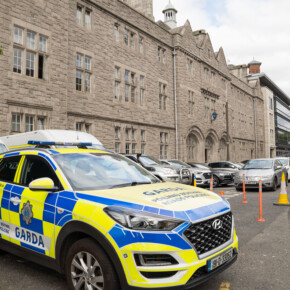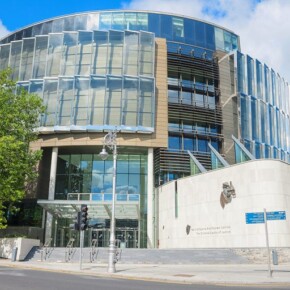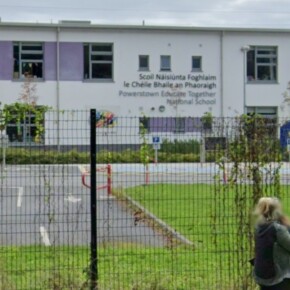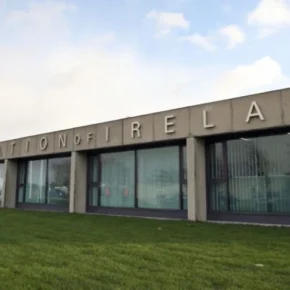Defence Forces may have to assist Dublin Airport security in case of Covid outbreak
Padraig Conlon 28 Jun 2022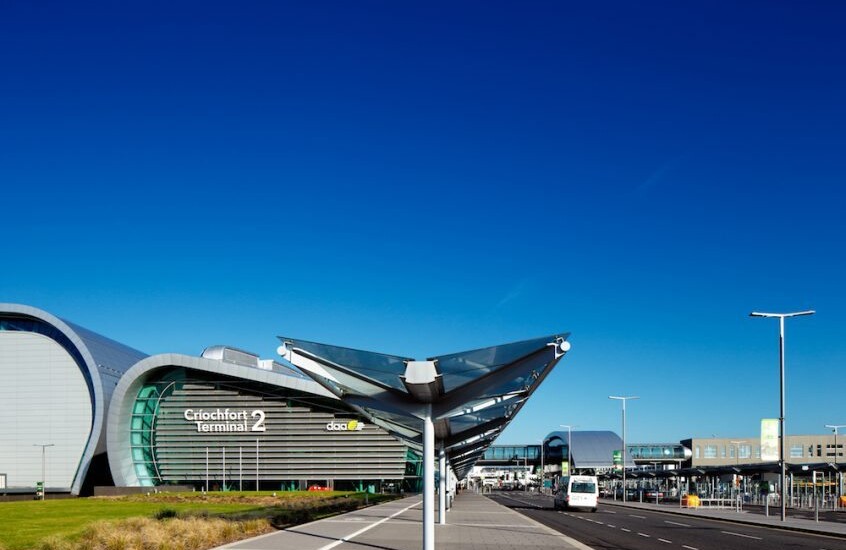
Defence Forces members are set to begin training in order to assist security personnel at Dublin Airport in the event of a Covid-19 surge.
The Government confirmed today that it has agreed to a request from transport ministers, Eamon Ryan and Hildegarde Naughton, that Defence Force staff prepare for training to provide security screening at Dublin Airport.
In a statement, the Department of Transport said:
“The risk of a case surge among its staff has prompted the daa to request the Government to put in place contingency planning that would allow for the short-term deployment of the Defence Forces to assist with operations at Dublin airport should it be required,”
Meanwhile, daa management has reiterated its confidence in its current plan which, during the first three weeks of June, saw 93% of all passengers spend 45 minutes or less queuing at Dublin Airport’s security screening areas, while 77% of passengers queued for 30 minutes or less
Over the past weekend, which daa say was the busiest Dublin Airport has experienced since the start of the COVID-19 pandemic, 91% of the 50,000 to 55,000 passengers that departed Dublin Airport each day cleared security screening in less than 45 minutes.
“While capacity reductions, which have been deployed at other UK and European airports, have been considered as a possible option,” daa said in a statement.
“There is general agreement that this is undesirable, given that it would be very challenging to implement with airlines and it would have a material impact on the summer travel plans of a significant number of Irish passengers and families most of whom have not enjoyed a foreign holiday in over two years.
“Hence, daa outlined to Government that a prudent contingency at this juncture could be for the State Authorities and daa to take initial steps to facilitate the training of Defence Forces personnel at the airport’s Vehicle Control Posts, should this ultimately be required.
“As a first phase, we outlined that the State could take preparatory steps in the immediate term to train and prepare Defence Forces personnel for such a deployment, in the event that significant COVID-19-related absences due to illness and infection affected daa’s own security team.
“Any deployment of Defence Forces personnel would only be triggered as a second phase, and only if ultimately required due to a COVID-19 outbreak.
“As recently as last weekend we have started to see the impact of the current rise in COVID-19 cases in the aviation sector, with 13 flights cancelled by one carrier last Sunday alone, citing an outbreak of COVID-19 amongst its staff as a key contributory factor.”
Daa also said its’ management team has been in regular and frequent contact with both Ministers Ryan and Naughton, and their officials in the Department of Transport, to consider any further contingency measures that could be implemented at Dublin Airport in the event of a resurgence of the virus over the coming months.
In response to the significant security queuing challenges that Dublin Airport experienced on May 29, daa has put in place a comprehensive operational plan to ensure that there has been no repeat of these challenges during June or in the busy summer period ahead. As part of this plan, daa has:
o Redoubled its efforts concerning the recruitment, training, and certification of the full complement of new security staff members that the airport requires.
o Redeployed all available security staff from other activities across the airport.
o Secured additional screening staff from Cork Airport.
o Delivered attractive overtime incentives to drive the uptake of additional hours amongst existing staff in security and operations.
o Deployed a company-wide task force of about 650 office-based and senior management staff.
o Delivered significant improvements concerning queue management and access control.
o Introduced a contingency ‘triage’ queuing process, to manage any potential overflow.
o Delivered a wide range of other process improvements, passenger experience, resourcing, and communications initiatives



